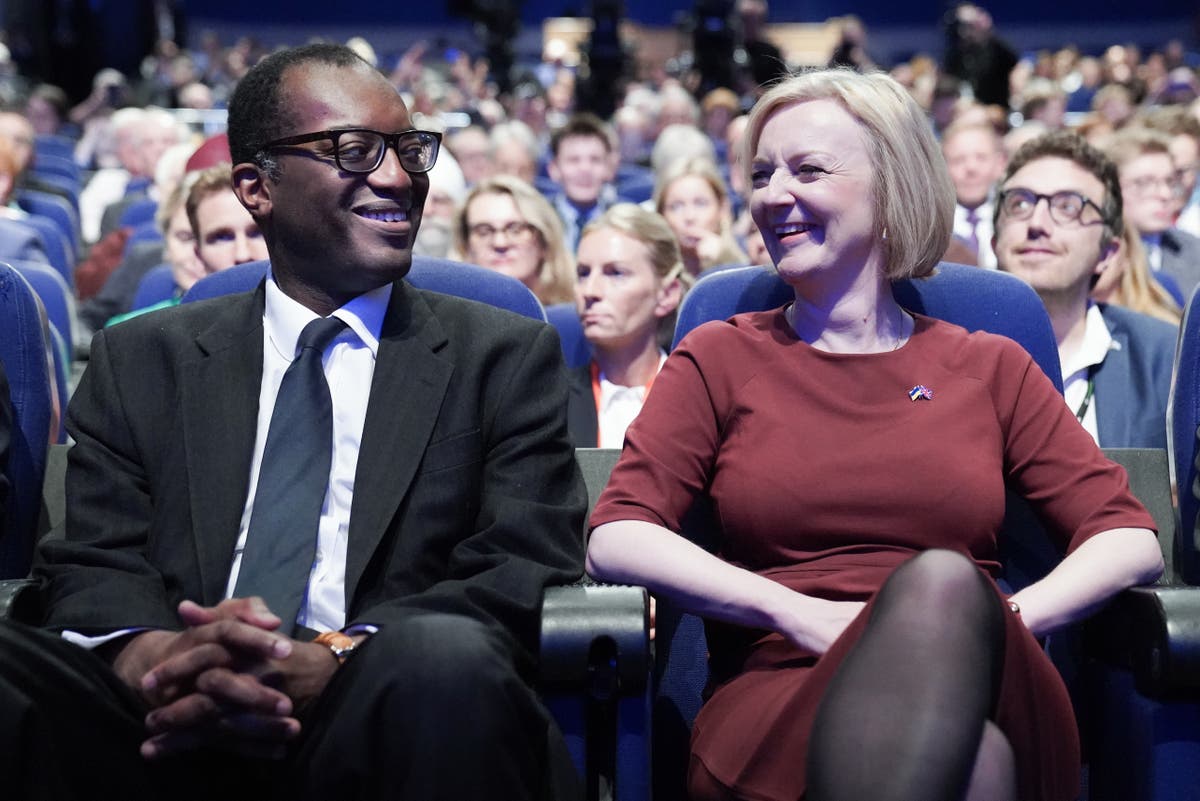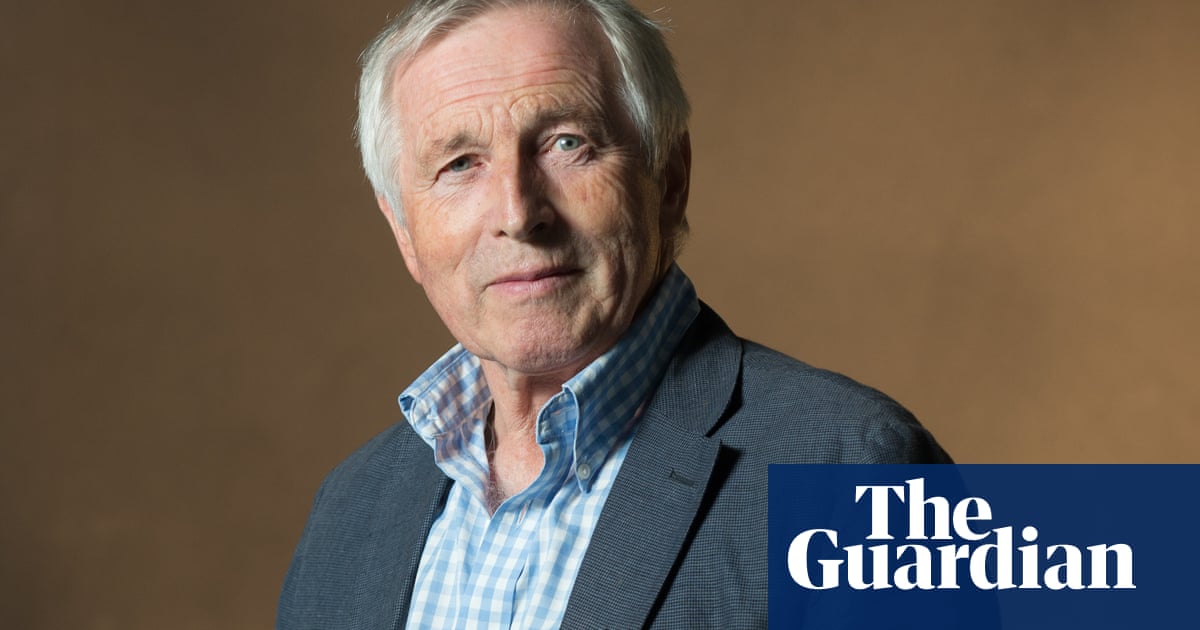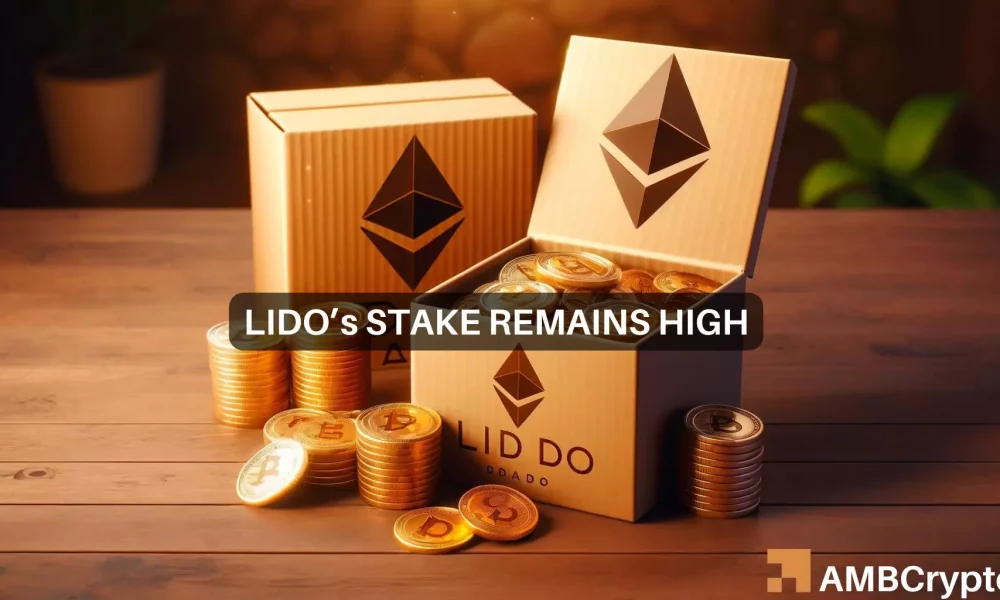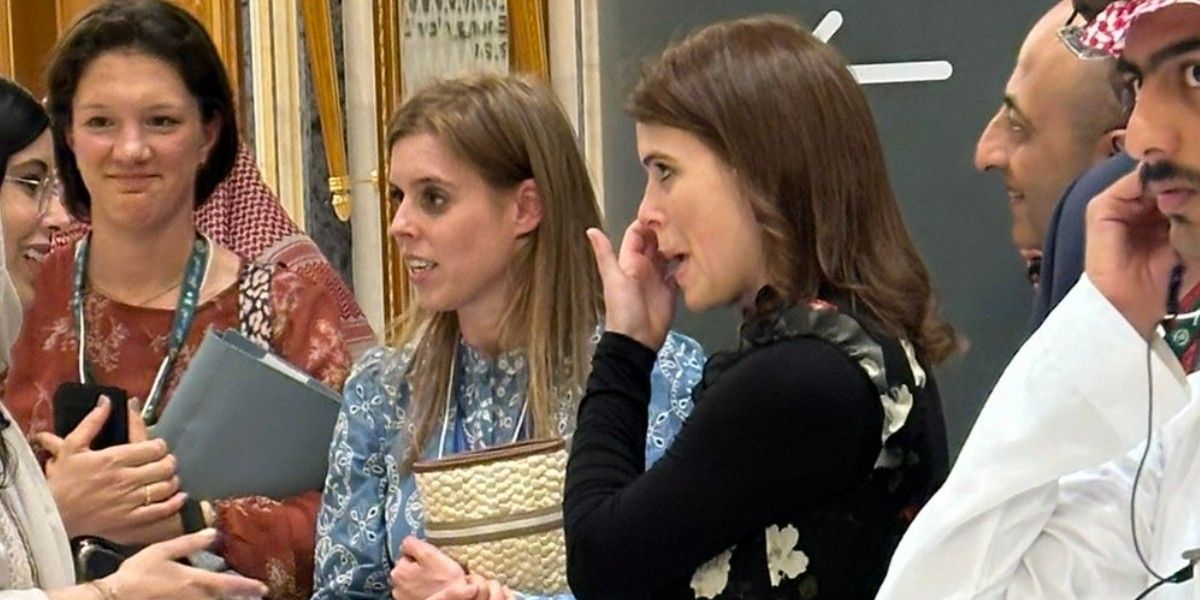After the most disastrous stint in Downing Street in living memory, Liz Truss is preparing to release her memoir.
She will argue she was ousted by the establishment and make a play for the ideological heart of the Tory Party.
The collapse of her project, known as “Trussonomics”, dealt a hammer blow to the Tory party’s long-held reputation for fiscal responsibility and careful economic planning.
Her mini-budget, concocted with then-chancellor and ideological bedfellow Kwasi Kwarteng, promised £45bn of unfunded tax cuts – the largest since 1972.
The argument was that increased borrowing for tax cuts, which targeted the wealthiest in society, would be paid for with higher economic growth, a dubious claim that was widely dismissed by economists and financial institutions.
The response from the markets was equally scornful. The pound collapsed and government bond yields, an indicator of the interest rate that the government borrows at, skyrocketed. It forced the Bank of England to intervene and buy up £65bn of government bonds to settle the market.
After the ensuing meltdown, Ms Truss sacked Mr Kwarteng and shortly after left Downing Street after only 49 days in power – the shortest premiership in British history.
Despite being outlasted in No 10 by a lettuce in a blonde wig – a stunt by the Daily Star Newspaper which challenged her to outstay the vegetable – Ms Truss spent a short time out of the spotlight before returning to the fray. She proceeded to lash out at the financial establishment, claiming that her efforts to cut taxes were “sabotaged” by the “administrative state and the deep state”.
In her book, Ten Years to Save the West, released next week, she will further elaborate on this theme and argue that her humiliating downfall was not of her own making, but actually the fault of the “global left”.
The Independent spoke to economists about Ms Truss’s economic ideas, why they didn’t work, and if they could make a possible return in the future.
Paul Dales, the UK’s chief economist at Capital Economics said: “She went about it in completely the wrong way, in my opinion, and in most economists’ opinions. One thing she concluded was that the way to boost GDP growth was just to have huge tax cuts and that would fire up the economy and those tax cuts would pay for themselves.
“Assuming essentially that it’s free money, which just isn’t really true. And she went too big too fast. The £45bn of unfunded tax cuts that were announced in that mini-budget were the biggest package of tax cuts in 40 years and were worth one a half per cent of GDP. It was just too much too soon.”
Mr Dales added that another mistake made by Ms Truss, and her chancellor Mr Kwarteng, was to circumvent the systems and institutions designed to ensure good management of the economy.
He said: “Markets would been worried about the way she was going about it, but what really pushed everyone over the edge was the undermining of the systems and the institutions.
She sacked Tom Scholar, the top civil servant at the Treasury and also sidelined the Office for Budget Responsibility (OBR), which was set up in 2010 by Tory chancellor George Osborne to check the sums for the government’s financial, or fiscal, plans.
“The whole point of the OBR is that they provide the checks and balances on political fiscal decisions. And by getting rid of them and not asking them to provide forecasts and assess plans it just really sent a big signal out there that Liz Truss and Kwasi Kwarteng weren’t taking fiscal responsibility seriously.
“Put another way it was like a family on £40k a year trying to borrow £5million pounds to try and buy a house worth £6million – it just doesn’t make economic sense. You can’t stretch that far, and that’s what worried the financial markets.
Pranesh Narayanan, an economist who works for the Institute of Public Policy (IPPR) think-tank, said Ms Truss was correct that the UK needed a radical shift in economic policy, but what she got wrong was what the shift needed to be and how to deliver it.
He said that much of the ideological heft of her programme came from Donald Trump’s Tax Cuts and Jobs Act, which included income-tax rate cuts and a reduction in the corporate income tax rate to 21 per cent from a top rate of 35 per cent. The rationale being that this would unlock lots of investment and private sector growth, he said.
However the problem with this, he argues, is that the UK and US economies are not similar, and that Ms Truss’s ideological “blinkers” left her unable to recognise the other tools that would be needed to grow the UK’s economy in the long term, not simply tax cuts for the wealthy.
He said: “The UK is not like the United States, you can’t just cookie cutter solutions over from there. We have a different set of problems and a very different economy. I think there was a lack of nuance or understanding of the problems the UK is facing.
“In the short term at the time there was a huge energy crisis, but also something that people hadn’t fully picked up on, was that we had the worst of both worlds in terms of the US’s labour shortage crisis and Europe’s energy crisis. And the focus was on trying to get tax cuts through without really thinking about how that would play out in the short term.”
He said that despite the UK having the lowest corporation tax rate in the G7, business investment has been low and that instead of tax cuts, Britain needs to invest in things that drive long-term growth, such as infrastructure and skills.
“The health service can either be a drag on growth or it can boost growth if it keeps our workers healthy. Investing in the health system, for example, is a strong positive policy that the Truss administration would never have considered because it’s politically unpalatable to give more funds to the NHS and to fix it you need to spend more money.
“It’s things like that, they’ve got these blinkers on and narrowed their focus so much on this one thing that’s the silver bullet that’s going to fix everything.
“The UK’s been through a period of austerity. Public services are on their knees…it’s a complete lack of acknowledgement of where the public sector has a role in growth and a misguided view of the role of tax in business.”
He argues that a long-term economic strategy would help businesses prioritise and be able to invest in the future.
He added: “Brexit was also a big source of uncertainty, that stopped investing as well.

William Turner is a seasoned U.K. correspondent with a deep understanding of domestic affairs. With a passion for British politics and culture, he provides insightful analysis and comprehensive coverage of events within the United Kingdom.








